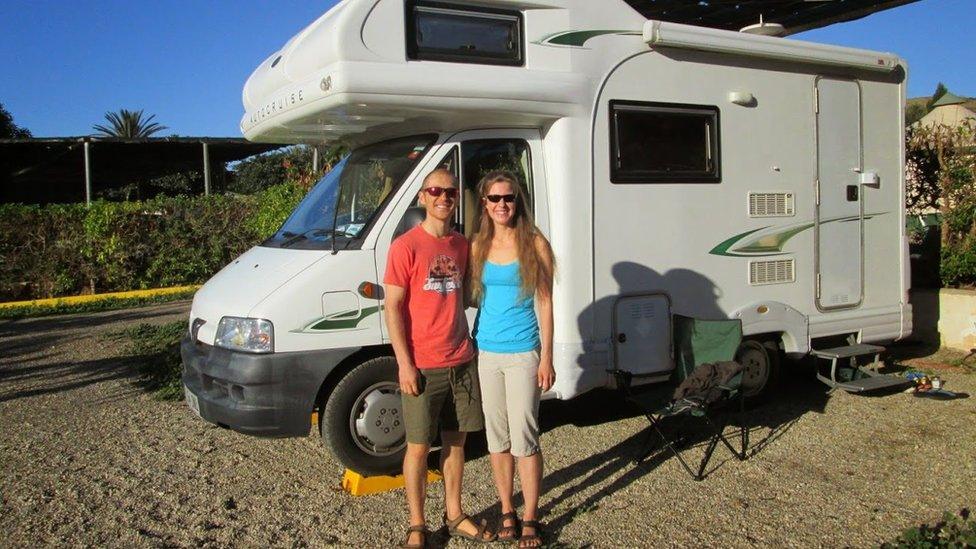Esther Dingley: Partner vows to keep searching for missing hiker
- Published
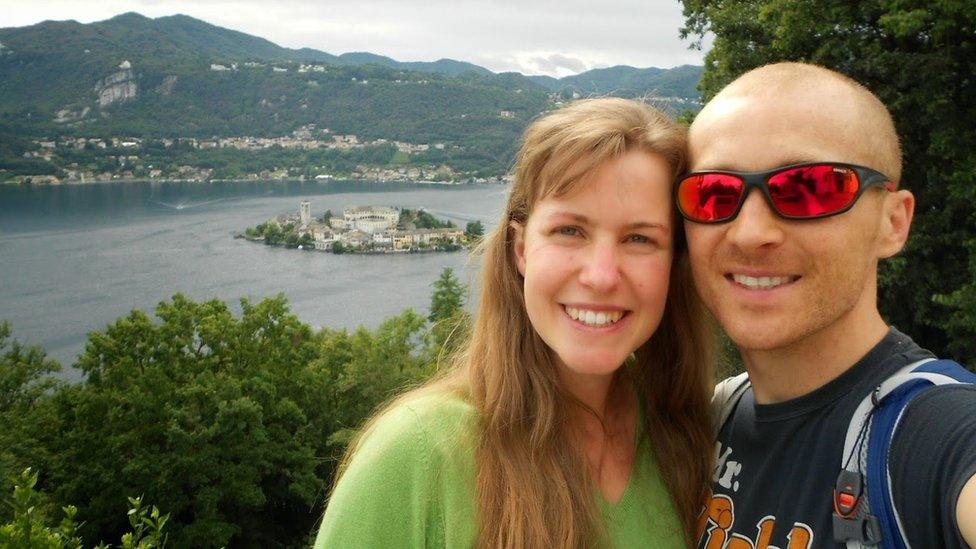
In 2014, Esther and Dan swapped their life in Durham for an open-ended campervan tour of Europe
Experienced hiker Esther Dingley was on a solo trek through the Pyrenees when she disappeared eight months ago. Her partner of 20 years Dan Colegate was staying in a French farmhouse 100 miles away when she failed to return from her latest adventure.
In his own words, Dan explains what he has endured since the love of his life went missing, and why he fears she may have been kidnapped - or worse.
Esther and I had an expression that we'd say to each other whenever we were going to be apart: "You never know when it's the last time."
Those were the last words we ever said to each other face to face.
During the month that Esther was touring solo in the Pyrenees, we still talked every day. We spoke, enjoyed video calls, sent chat messages and shared photographs of our respective days.
Spending time apart every now and then was something we'd built into our relationship after touring for more than seven years in a motorhome. As far as we were concerned, it was a sign of trust and a mature, healthy relationship.
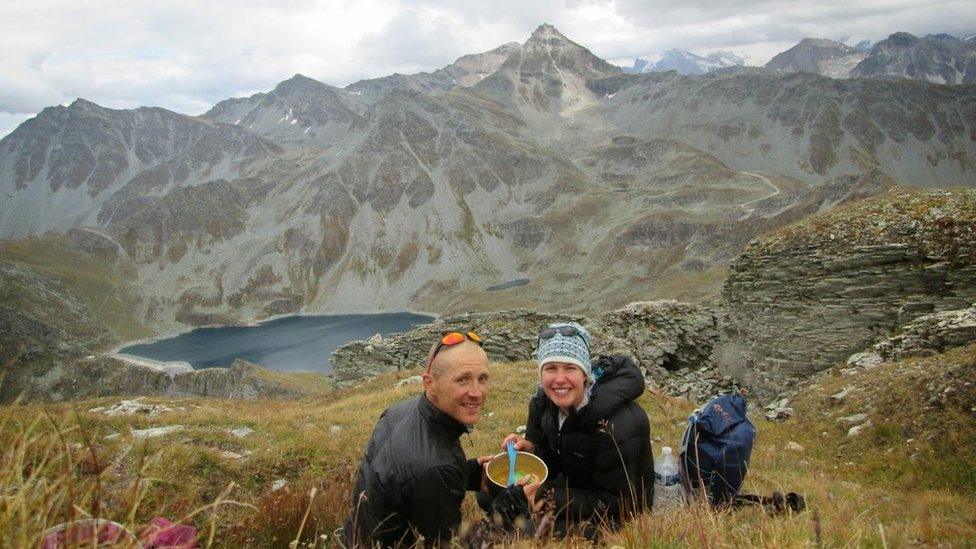
Still, after a month, we were counting down the days to our reunion. "Just one more hike, because the weather is still so good," Esther had said. Within a week my world had fallen apart.
When Esther didn't get in touch on the day she'd specified as the latest possible return, I tried to tell myself it would be OK. I'd been worried for days, ever since our last conversation when she was at the top of the Pic de Sauvegarde on 22 November, but I also respected her abilities and independence. Worrying was part of the deal when living with such a free spirit.
I spent the first day after I reported her missing pacing up and down at the house I'd been staying at, answering questions and giving statements to the rescue teams by telephone. I told myself that she would be found quickly. Perhaps she'd be injured, I thought, but she'd soon be safe.

Yet as that first day ticked by, the prospect that she wasn't going to be found so easily began to creep over me like a cold sweat. My throat began to tighten, I felt like I was suffocating.
Desperate to do something, I made arrangements to hire a car so that I could drive down to the Pyrenees and search myself. Having something to do helped, but on returning to the house I collapsed on to the driveway, curled up in a ball and cried into the gravel for the next hour and a half.
Esther's vanishing has defined almost every waking moment for me for more than seven months now. Between December and March, with the Pyrenees unsearchable due to the heavy winter snow, I marched along the streets of my native Nottinghamshire, not going anywhere, just trying to pass the time by covering mile upon mile every day. My family looked after me, worried about me, watched my beard grow longer along with the bags under my eyes.
The interminable wait ended in spring when I returned to the Pyrenees. Since then I've hiked for more than 700 miles (1,130km), ascending close to a total of 330,000ft (100,000m), snaking across every accessible bit of mountainside surrounding Esther's route.
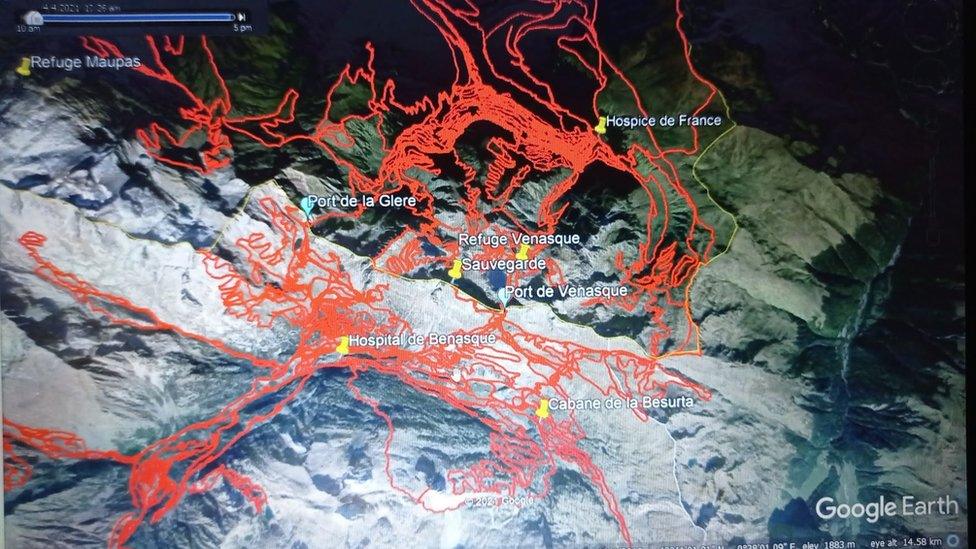
This map shows the routes Dan has walked
The question on my mind with every step has been the same: "If she stood here and fell, where would she be?"
And, for most of the day when I'm not searching, my brain is churning over the myriad of equally unlikely possibilities that could explain where my soulmate has gone.
Not that there aren't moments of pleasure. Conversations with friends help, but most of all I enjoy seeing my nieces and nephews on WhatsApp. These are my forgetting moments, though the cost of remembering afterwards is always hard to face.
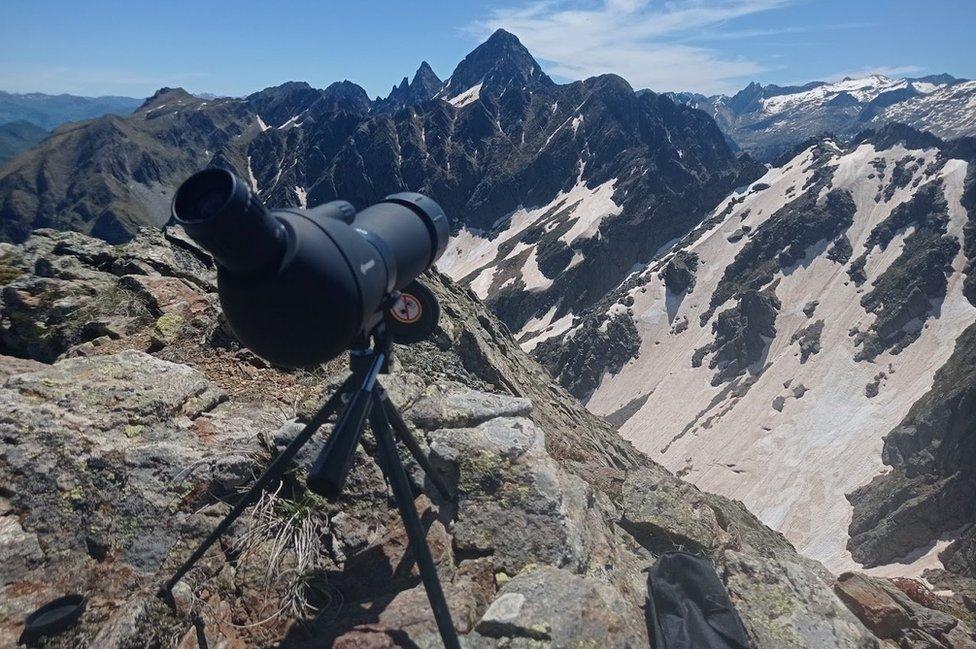
Now that all of the snow has melted, the professional search-and-rescue teams have also been out again, with dogs and helicopters in addition to throngs of hikers now flowing into the region. Nobody has found a single trace of Esther.
"Sometimes hikers just vanish," I hear people say, and it sounds so reasonable and convincing on the face of it. And yet, after just a moment's thought, that reasonableness fades away and it turns out that this "explanation" is not an explanation at all.
Every unexplained disappearance should be considered on its specifics. The nature of the terrain, how clear the paths were, how close were roads or villages, how good was the phone signal, the equipment the person was carrying, whether their destination and route was known or not, the weather, the individual's experience and the intensity of the search; these are all important factors.
In Esther's case, all of these factors are known in detail. Her route was situated between two roads, one in France, one in Spain and just three miles (5km) apart as the crow flies. The weather was excellent, with an almost full moon and clear skies at night. Esther carried high-quality survival equipment, she had everything she needed to stay warm and dry in much worse weather than she experienced.
The paths throughout the entire region are well made and easy to follow, even in the dark. The phone signal was good on much of her planned route, with the no-signal zone just a couple of kilometres in radius. In fact, if I'd known how good the phone signal was beforehand, I'd have reported Esther missing two days earlier.
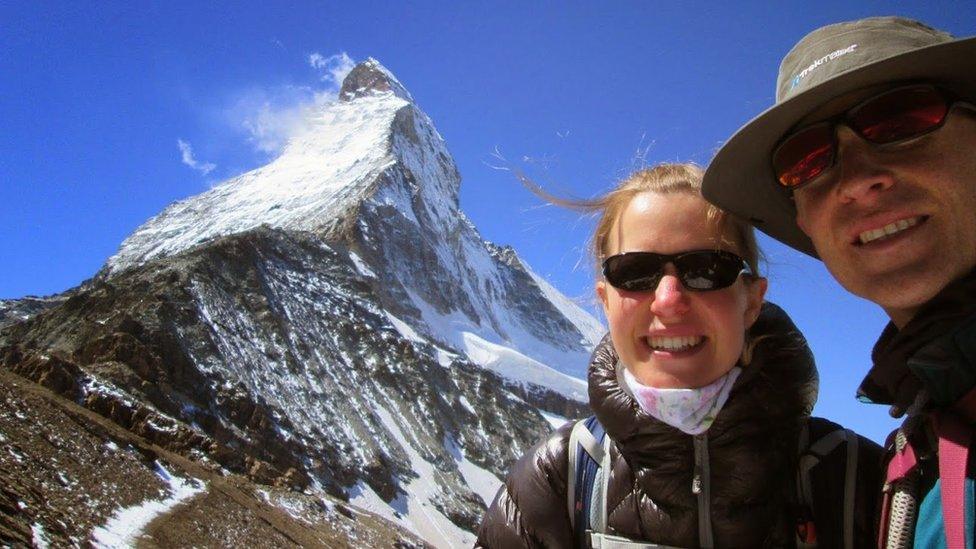
Although Esther was in the mountains, she wasn't battling towards a Himalayan summit. She was simply following paths that children walk with their parents in summer, close to easy-access roads.
But even all of these details are less important to me than the simple physics involved. Somebody who falls has to come to rest somewhere.
I am yet to come across a place that Esther could have fallen to that isn't visible. I've zigzagged through the forests, picked my way through boulder fields and explored every little recess on the plateaus, wandering kilometres away from the well-defined paths.
The only unexplored areas are the handful of lakes in the area, but these are typically crystal clear, shallow at the edges, and no debris was ever seen floating on them.
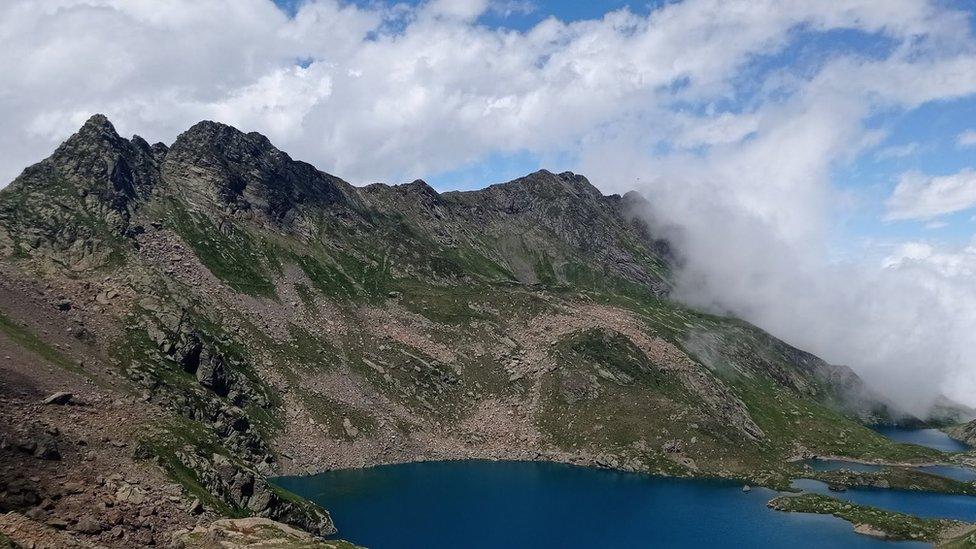
In the wider area there are higher, more demanding trails and mountain peaks, but these were already inaccessible due to snow coverage when Esther was in the area.
And yet, despite the intense searching and failure to find anywhere that could explain a complete disappearance, the attitude of police in France and Spain is that it must be an accident, "even if we can't explain it". They ruled out a voluntary disappearance months ago.
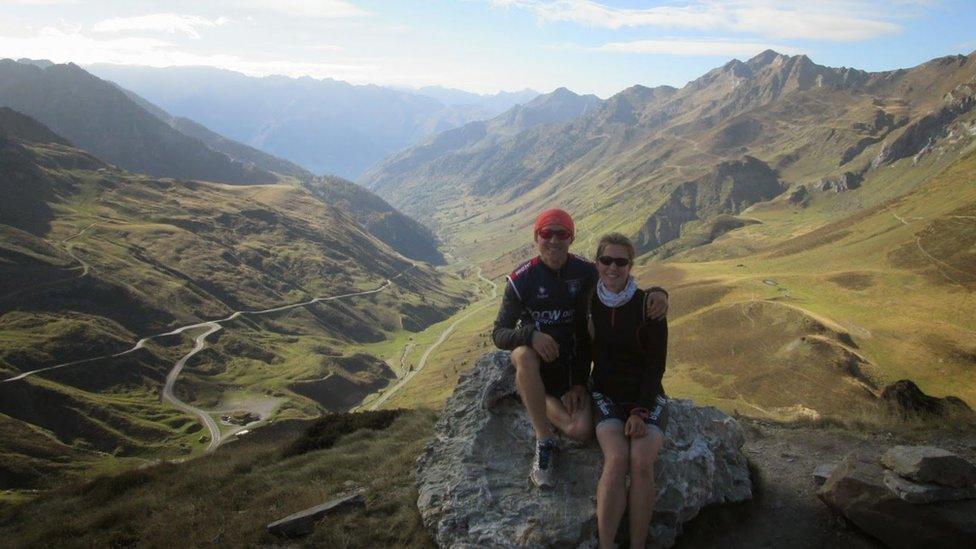
Deciding between whether Esther's disappearance is due to an accident or a crime comes down to probability. With no hard evidence whatsoever to go on beyond Esther's last known location, the police are using their knowledge of how most crimes are committed, to say: "This is unlikely to be a crime, we can't rule it out, but it's so unlikely that we lean towards an accident."
While I have deep respect for the abilities and commitment of the police forces in both France and Spain, this is an opinion I can no longer agree with.
The search has now been so prolonged and so intense, that as far as I'm concerned the probability of an accident is now less than the probability of a criminal act.
Esther was a lone, attractive, young woman, confident and feeling safe, who was comfortable speaking to strangers and striking up conversation. All of her experiences in the mountains over a decade had taught her that she could trust people, that they would offer help if needed.
She was on a mountain with roads on either side of it, and was there in hunting season when someone carrying a weapon wasn't likely to draw attention. Yet, because of the lockdown on the French side, the area shouldn't have been busy either.
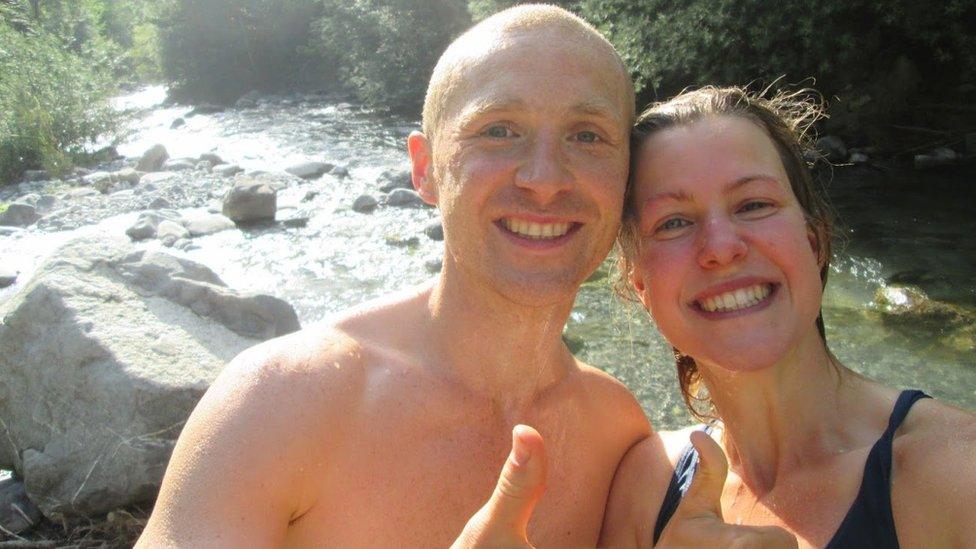
It isn't a huge stretch of the imagination to visualise an opportunistic crime happening in such a situation; that a "highly unlikely" scenario did occur after all.
Of course, I can't prove that Esther isn't on the mountain somewhere, all I can do is keep searching, meticulously sweeping back and forth across an increasingly large area.
Public appeals have brought forward a few witnesses but we still need to establish exactly who was in the area at the time based on phone data, which I know the police are looking into.
The police have been excellent with the searches and with me. I do not doubt their sincerity; we all just want to find her and find out what happened to her.
Her family and I all know the probability of seeing Esther again is very small now, but with no categorical evidence of anything at this stage there is still a tiny chance she is being kept alive somewhere.
I have been told by several friends that looking for Esther must be like looking for the proverbial needle in a haystack.
Personally, I disagree. The area simply isn't that complicated.
However, even if the analogy did work, my response would be that you can find a needle in a haystack, if you're willing to study every strand, one at a time.

Any information about Esther's disappearance can be reported to LBT Global.
As told to Duncan Leatherdale
- Published2 July 2021
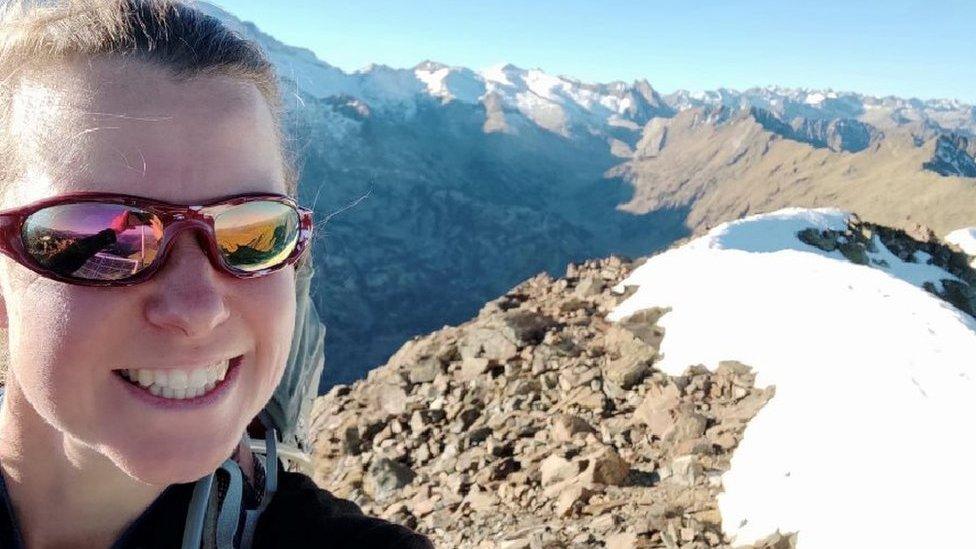
- Published1 July 2021
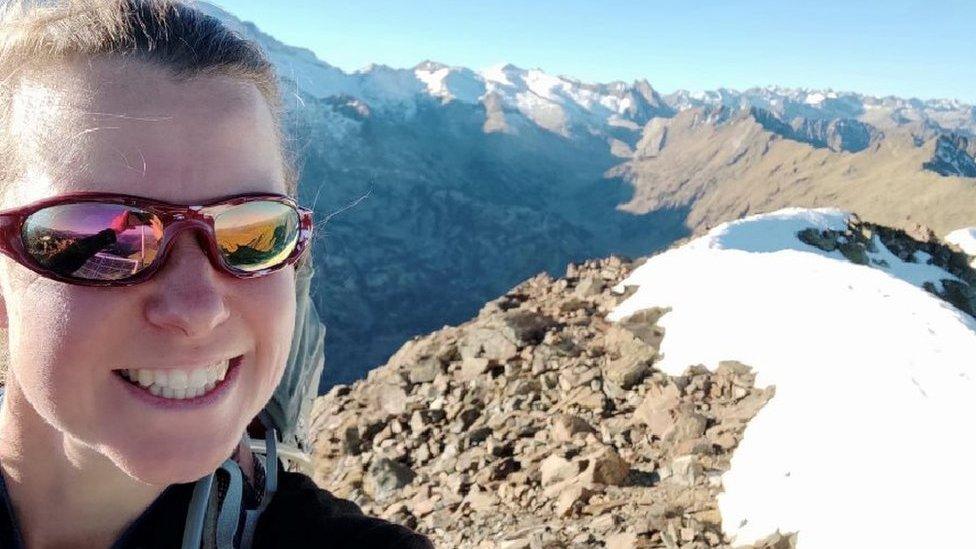
- Published15 June 2021
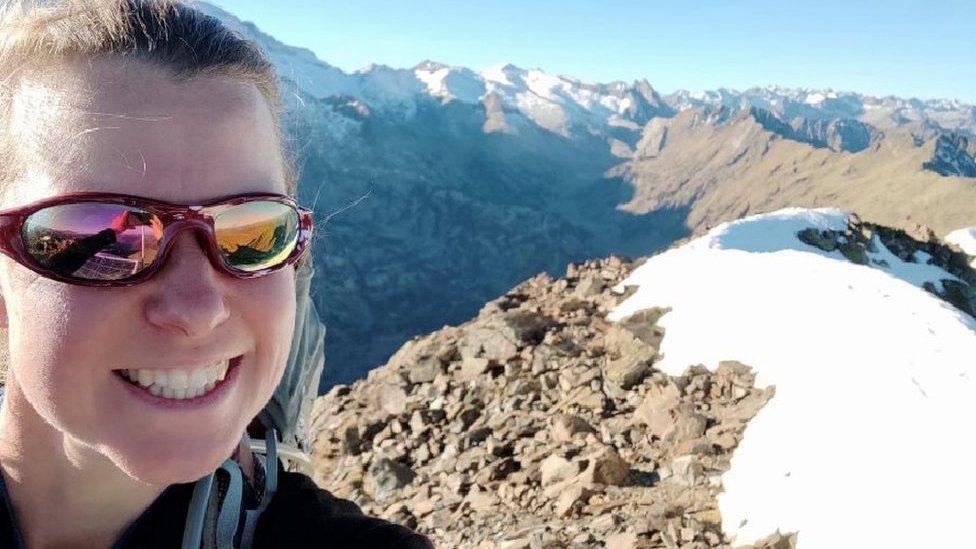
- Published26 April 2021
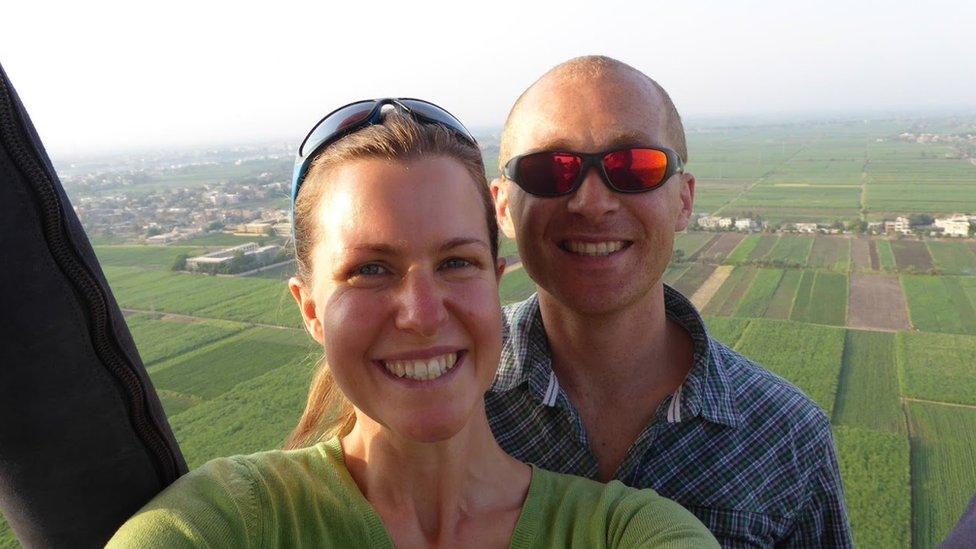
- Published3 February 2021
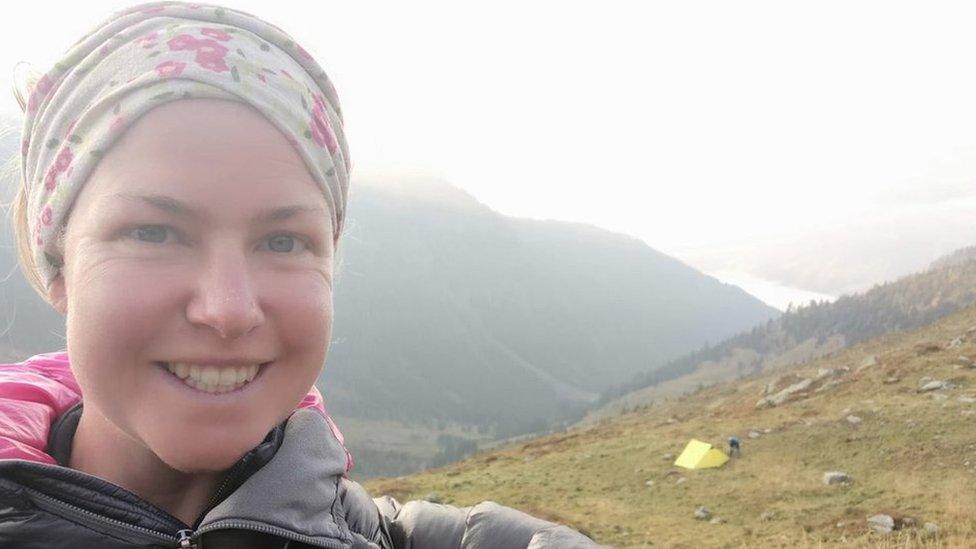
- Published11 January 2021
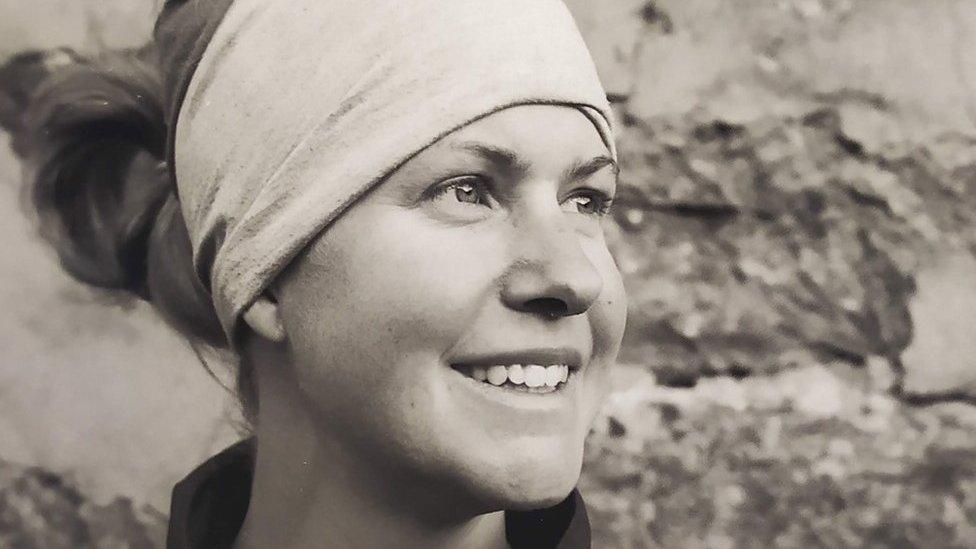
- Published14 December 2020

- Published10 December 2020
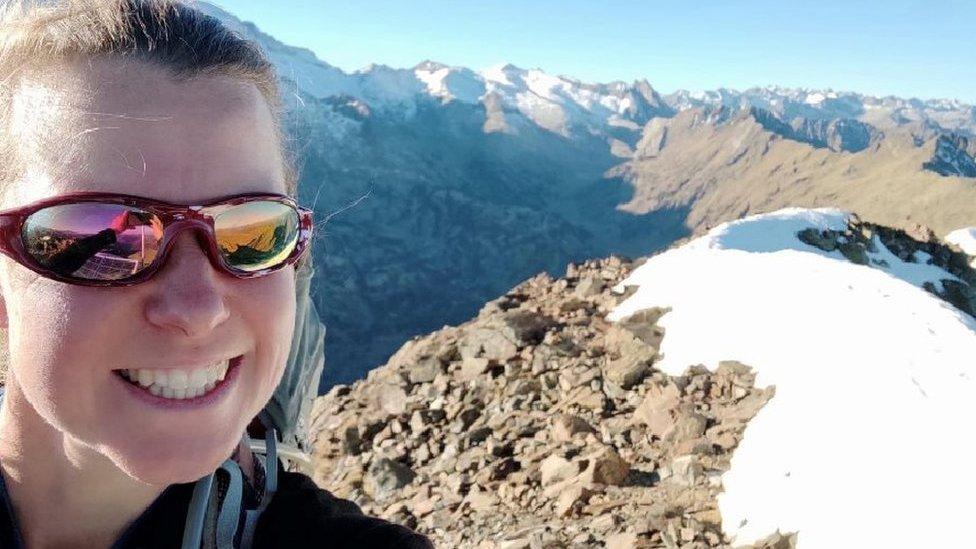
- Published1 December 2020
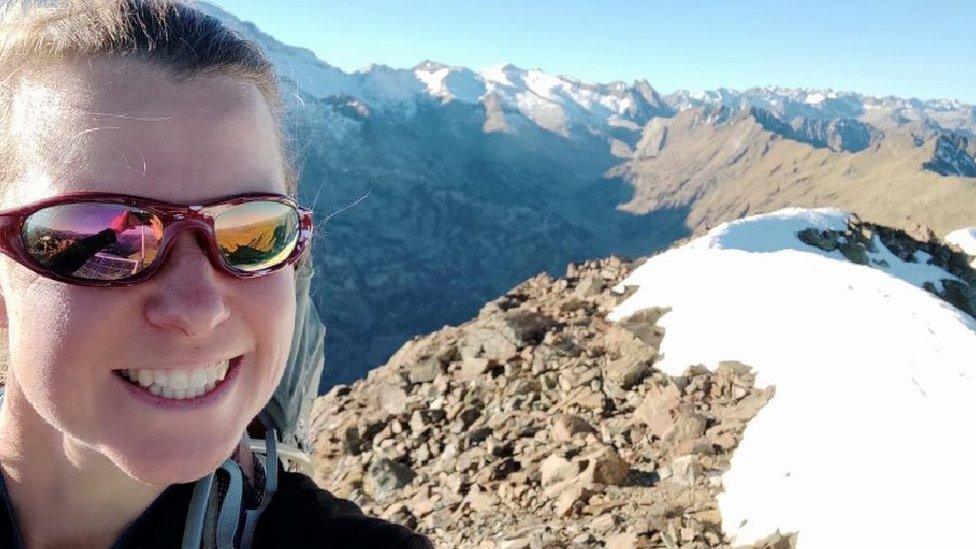
- Published29 November 2020

- Published28 November 2020

- Published22 November 2020
